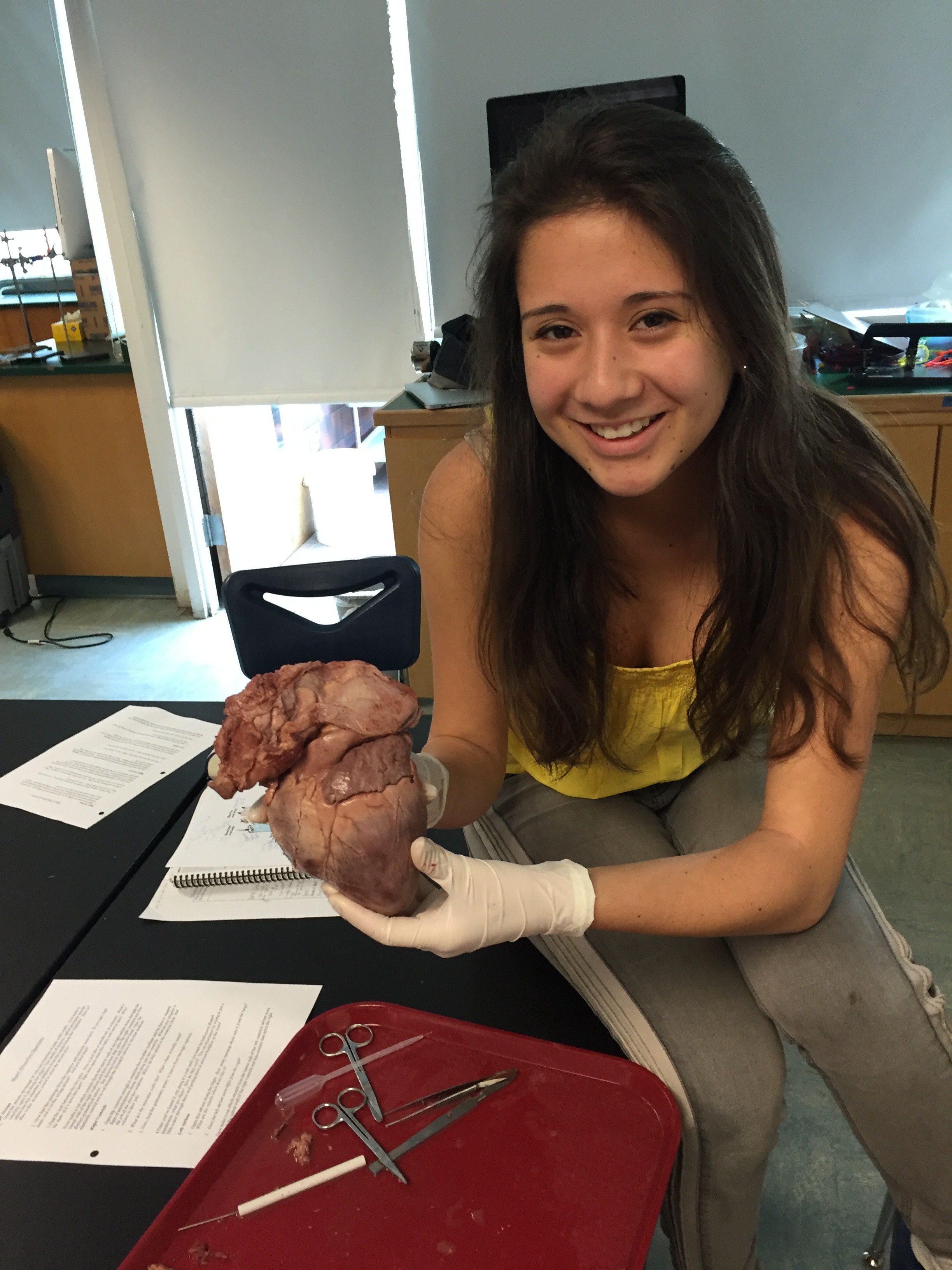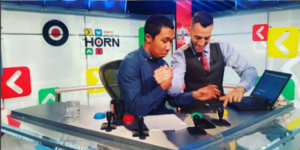Guts and blood, intestines and lungs, are some of the gross wonders of an organism’s body that you will encounter when you take Honors Biology: Anatomy and Physiology.
The class meets in the Bio Lab, which provides the best workspace for “an in depth exploration of systems of the human body.” The class examines the different functions and systems of the human body, including: the muscular, skeletal, digestive, circulatory, respiratory, immune, nervous, endocrine, and reproductive systems.

photo by Jill Reilly
Carrie Maslow, head of the Science Department at LWHS, teaches Lick’s famous A&P course. Maslow knows her subject well. When she was an undergraduate at Yale, she was pre-med and earned her degree in psychology. In addition to a B.S., Maslow holds a Masters in Teaching with a credential in science. At Lick, Maslow also teaches Lick-Wilmrding’s equally famous psychology course — Brain and Behavior. Maslow has been teaching science at Lick for 17 years.
Maslow uses an interdisciplinary approach in Anatomy and Physiology. She divides the class into different units. In each unit, students learn the anatomical structure of the system and how and why it works For the most part students don’t learn about these concepts through textbook reading but rather through a wide variety of dissections and the analysis of animal extremities.
Maslow, when asked about her favorite moments in the class over these past 17 years, responded with, “[There are] too many to recount. I guess my favorite times have been the more intense dissections- like the full plucks- (esophagus, liver, heart, lungs – where students dissected all of those organs and then blew up the lungs with own breath). Also, it’s always wonderful watching the students take the knowledge they gained in the class and teach elementary school age students in the spring teaching projects. Each class dynamic is unique and fascinating each year.”
Students do not only dissect and blow up lungs. They dissect a nice variety. The full plucks include both minor dissections, and large scaled emotional dissections. For example, in January, 2016 students examined an entire fetal pig, investigated its digestive system, unraveled its small intestine to measure whose pig’s intestine was the longest, and removed kidneys, livers, and all of the gruesome insides of the organism. The emotional aspect of this dissection (and future dissections) came with the face to face encounter from the previously living pig. Maslow and the teaching assistants, Nithya Sharma ’16 and Aidan Lisker ’16,covered the heads of the pigs. The goal was to detach one’s emotions with the previously living pig.
Maslow also likes to stress that the class is very conscious of the use of the body parts. She explained how that she attains many of the parts for dissections from. “I mainly get them in Chinatown but sometimes at the butcher which is very Far East on 24th street in the mission and sometimes (if they are preserved) from Carolina science.

One of the most essential aspects of the class is the emphasis on ethics in medicine. Recently the class has been discussing bioethics. Given the task of deciding which of four patients to allocate a liver transplant to, the students have been engaged in deep ethical discussions Blythe Engel ’17 describes this aspect of the class. “I loved the bioethics unit because we were able to understand the decisions doctors have to make regularly and realize how morally difficult they are. The debates we held in class were probably my favorite part of this year so far because each person had a different take on what was important and what wasn’t, in terms of who got the organs, dialysis machines, etc. I think the exercise challenged my mind because in a lot of classes there is a right and wrong answer but in this unit, it was solely based on what you believed was right even though it affected the life of another human being (literally).”
Engel has a strong interest in the medical field, which is part of the reason she enjoys the class so much. “Ms. Maslow tries to make it as close to a pre-med class as possible (for example, the anatomy quizzes are done on actual bones/body parts rather than filling in the blanks) while also making it fun, with real case studies and dissections all the time!”
But even if you are not planning on becoming a doctor, the skills that one learns in the class are essential in life. Max Ozer-Staton ’16 hasn’t completely ruled the medical field out of his future, but thinks that it is unlikely he will become some type of doctor. But to him, the skills and concepts he has taken away thus far go beyond the content. “One of the really important and applicable aspects of the class that I’ve learned has been the necessity to focus on details. When we do dissections there’s a need to be precise and have a lot of focus as to where we are cutting as well as care while cutting. Another aspect is understanding the interplay of the human body, which I think connects to a general skill of understanding the connected nature of most concepts and how different aspects affect each other.”
The class’s intensity is balanced out by the equal amount of fun. According to Bonnie Wong ’17, “The class is, honestly, one of the parts of my day I truly look forward to.” The hands-on experience of engaging in a non-virtual, real life experience provides students with a valuable, versatile, and applicable “pre-pre-med” education.








Nice reporting on the class, teacher and some of the students. Makes me want to take this class, 30 years after I taught anatomy in medical school! Yo